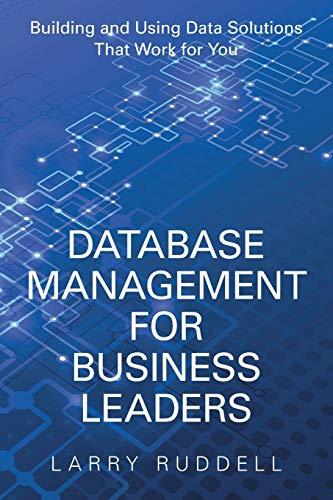Question
Your task is to implement a recursive descent parser to recognize and evaluate simple expressions in Python. You will start with the program pluto1.py and
Your task is to implement a recursive descent parser to recognize and evaluate simple expressions in Python.
You will start with the program pluto1.py and extend it to a Pluto 2.0 version that will include support for boolean expressions and comparison operators.
Pluto 2.0 will be based on the following grammar:
You will also have to define and accept tokens to represent the boolean values 'True' and 'False', the boolean operators 'and', 'or' and 'not' and the comparison operators '<', '>', '<=', '>=', '==', '!=':
BOOL: 'True' or 'False'
AND: 'and'
OR: 'or'
NOT: 'not'
COMP_OP: '<', '>', '<=', '>=', '==', '!='
Here are some test cases. More tests are provided in the grading rubric. Please feel free to add your own.
Pluto 2.0>>>8.5 > 6 and 8 + 3 == 11 and 72 <=100 and 5 != 2+6 and 100 >= 20 or 4 < 2
True
Pluto 2.0>>>not not not True
False
Pluto 2.0>>>9 * 4 + 4 > 17
True
Pluto 2.0>>>not(8/2 > 3.14) or 7 < 10 and 10 < 1
False
Pluto 2.0>>> 8 * 2.0 == 16
True
Pluto 2.0>>>7 + 6 * 2 != 15
True
Pluto 2.0>>>8 + 9 != > 10 Parser error Expected: NUMBER Got: > line 1 position 9
Pluto 2.0>>>True or True and False
True
Pluto 2.0>>>(True or True) and False
False
Pluto 2.0>>>not True or True
True
Pluto 2.0>>>not (True or True)
False
HINTS:
The operator module includes the functions corresponding to the comparison operators: lt, gt, eq, ne, le, ge
If we add the import statement:
from operator import lt, gt, eq, ne, le, ge
then instead of:
result = a < b
we can write:
result = lt(a, b)
Make sure you add these comparison operators and their corresponding functions to the SUPPORTED_OPERATORS dictionary.
Make sure you always call match to advance to the next token. If the parser is generating an error that does not make sense, it is very likely that there is a missing call to match.
Pluto 1.0 code:
""" Recursive descent parser to recognize & evaluate simple arithmetic expressions Supports the following grammar:::= ::= {ADD_OP } ::= {MULT_OP } ::= LPAREN """ import lex from operator import add, sub, mul, truediv # For the homework, uncomment the import below # from operator import lt, gt, eq, ne, le, ge # List of token names - required tokens = ('FLOAT', 'INT', 'ADD_OP', 'MULT_OP', 'LPAREN', 'RPAREN') # global variables token = None lexer = None parse_error = False # Regular expression rules for simple tokens # r indicates a raw string in Python - less backslashes t_ADD_OP = r'\+|-' t_MULT_OP = r'\*|/' t_LPAREN = r'\(' t_RPAREN = r'\)' # Regular expression rules with some action code # The order matters def t_FLOAT(t): r'\d*\.\d+|\d+\.\d*' t.value = float(t.value) # string must be converted to float return t def t_INT(t): r'\d+' t.value = int(t.value) # string must be converted to int return t # For the homework, you will add a function for boolean tokens # A string containing ignored characters (spaces and tabs) t_ignore = ' \t' # Lexical error handling rule def t_error(t): global parse_error parse_error = True print("ILLEGAL CHARACTER: {}".format(t.value[0])) t.lexer.skip(1) # For homework 2, add the comparison operators to this dictionary SUPPORTED_OPERATORS = {'+': add, '-': sub, '*': mul, '/': truediv} def command(): """RPAREN | FLOAT | INT ::= """ result = arith_expr() if not parse_error: # no parsing error if token: # if there are more tokens error('END OF COMMAND OR OPERATOR') else: print(result) def arith_expr(): """::= """ result = term() while token and token.type == 'ADD_OP': operation = SUPPORTED_OPERATORS[token.value] match() # match the operator operand = term() # evaluate the operand if not parse_error: result = operation(result, operand) return result def term(): """{ ADD_OP } ::= """ result = factor() while token and token.type == 'MULT_OP': operation = SUPPORTED_OPERATORS[token.value] match() # match the operator operand = factor() # evaluate the operand if not parse_error: result = operation(result, operand) return result def factor(): """{MULT_OP } ::= LPAREN """ if token and token.type == 'LPAREN': match() result = arith_expr() if token and token.type == 'RPAREN': match() return result else: error(')') elif token and (token.type == 'FLOAT' or token.type == 'INT'): result = token.value match() return result else: error('NUMBER') def match(): """ Get the next token """ global token token = lexer.token() def error(expected): """ Print an error message when an unexpected token is encountered, sets a global parse_error variable. :param expected: (string) '(' or 'NUMBER' or or ')' or anything else... :return: None """ global parse_error if not parse_error: parse_error = True print('Parser error') print("Expected:", expected) if token: print('Got: ', token.value) print('line', token.lineno, 'position', token.lexpos) def main(): global token global lexer global parse_error # Build the lexer lexer = lex.lex() # Prompt for a command more_input = True while more_input: input_command = input("Pluto 1.0>>>") if input_command == 'q': more_input = False print('Bye for now') elif input_command: parse_error = False # Send the command to the lexer lexer.input(input_command) token = lexer.token() # Get the first token in a global variable command() if __name__ == '__main__': main()RPAREN | FLOAT | INT
Step by Step Solution
There are 3 Steps involved in it
Step: 1

Get Instant Access to Expert-Tailored Solutions
See step-by-step solutions with expert insights and AI powered tools for academic success
Step: 2

Step: 3

Ace Your Homework with AI
Get the answers you need in no time with our AI-driven, step-by-step assistance
Get Started


